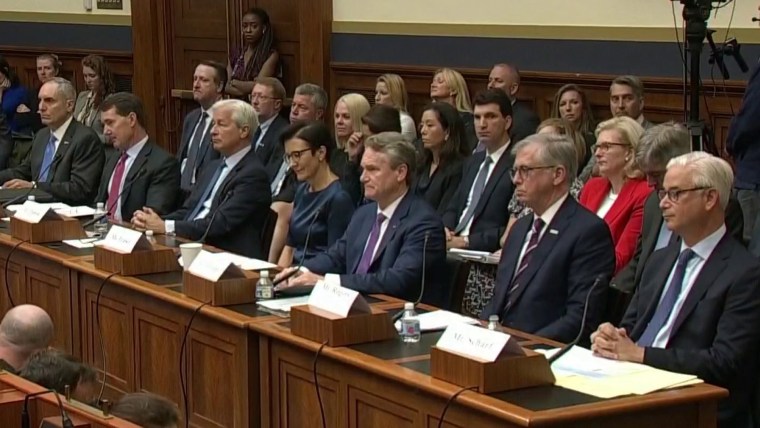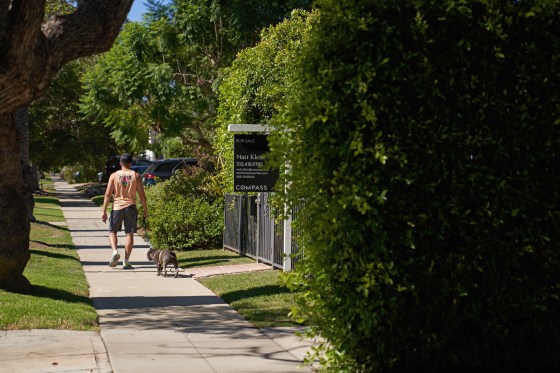As the Federal Reserve raises interest rates to fight inflation, the housing market has been feeling the effects of this monetary policy more intensely than other parts of the economy.
Since the beginning of the year, the interest rate on a 30-year mortgage loan has climbed from about 3% to nearly 7%, making it much more expensive to buy a house.
Buying a home in the U.S. with a 20% down payment in 2021 — when the average sales price according to data from the National Association of Realtors (NAR) was $357,100 and the average 30-year mortgage interest rate was about 3% — meant your monthly payment would have been roughly $1,204.
As of May of this year, the average median price of a home in the U.S. climbed to $414,200, the NAR data shows. Accounting for the higher mortgage rates, which reached a 6.7% average this week, the monthly payment would be about $1,842 — an increase of 53%.
Put differently, NAR said in August the average qualifying annual income to be able to afford a home in the U.S. with a 20% down payment reached $88,371 — a 37% increase from the qualifying income of $58,314 one year ago.
How much higher could mortgage rates go? According to one mortgage rate tracking firm, some lenders are now quoting as high as 7%.

Fixed mortgage rates track the yield on the 10-year Treasury note, and not the Fed’s key federal funds rate — at least not directly. But both 10-year yields and the federal funds rate are moving higher in response to inflation. Essentially, investors are demanding more money to get ahead of further price increases.
The upshot: As long as inflation remains hot, the housing market will remain expensive and increasingly out of reach for average Americans.
But mortgage rates are unlikely to go much higher than 7%, according to Bank of America managing director Jeana Curro, who tracks the housing market for the bank. At the moment, Curro said, lenders are demanding a higher premium because of the volatility financial markets have been experiencing, and the price uncertainty that such volatility causes.
But at some point, housing could become so unaffordable that the market completely freezes up. Assuming bond yields stabilize, lenders may begin to soften their terms.
Already, there are signs housing prices are cooling. In July, home prices fell for the first time since March 2012, according to the S&P CoreLogic Case-Shiller index which tracks changes in real estate prices. The housing group Redfin also reported the number of homes sold had decreased by 23% year-on-year in July.
Referring to mortgage interest rates potentially topping out at 7%, Curro said: "7% feels about right."

